The intention of this article is to provide information about the
changes between two releases of Oracle with respect to Supplier.
Here we are going to learn the importance of a supplier? How to create a Supplier in R12?
Who is a Supplier?
Let us now understand who is a Supplier with the help of a simple example:
We consider us as a business, who sells dry fruits on a large scale, now all the Vendors who intend to consume dry fruits would be contacting us. So with this perspective we become the Supplier to all the vendors and these vendors are our Customers.
Now to automate this process at the Vendors perspective the Supplier information are to be recorded so for this we have a suppliers window to record information about individuals and companies that provides goods or services from whom a vendor purchases those goods and services in return for payment. The information about the Supplier, Supplier Site, Supplier Contacts & Banks are recorded and these are created as one time setups and are not the daily activities which are later updated when ever required.
Change in the approach for Supplier on R12 when compare to 11i:
Suppliers in R12:
When compare to the earlier release, in R12 Suppliers and Banks are also part of TCA. Suppliers Sites are as TCA Party Site for each distinct address. A single change to an address can be seen instantly by all OUs, this has an added advantage we no longer need to manually ‘push’ updates across OUs.
This is best illustrated below:

Going further Bank Accounts are classified into Internal & External Bank Accounts
The typical data model for bank can be summarized as below:
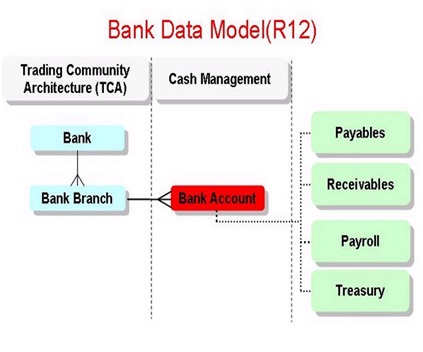
Note: Adding to the above information, more details on the supplier when related to TCA (Trading Community Architecture) have been mentioned in my blog “R12 TCA (Trading Community Architecture)”, Request you to please do refer my blog for more details.
We now move further on how a supplier can be created in R12.
Supplier Creation
Supplier in R12 can be created in the below ways:
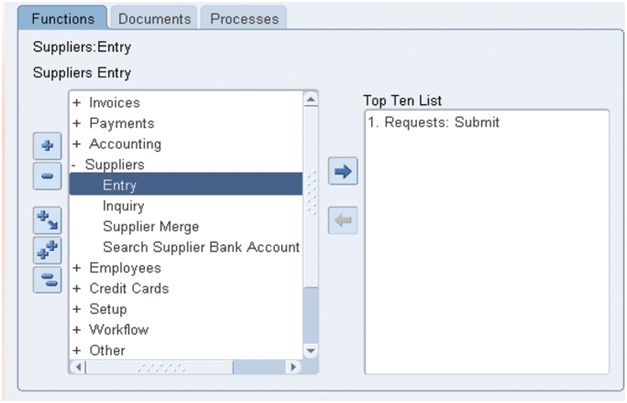
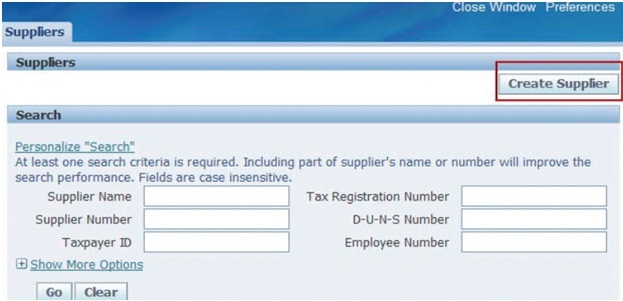

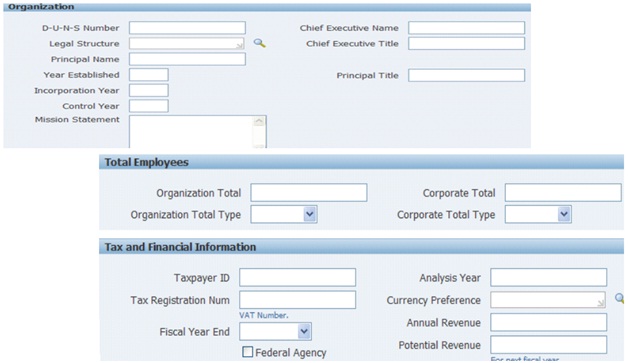
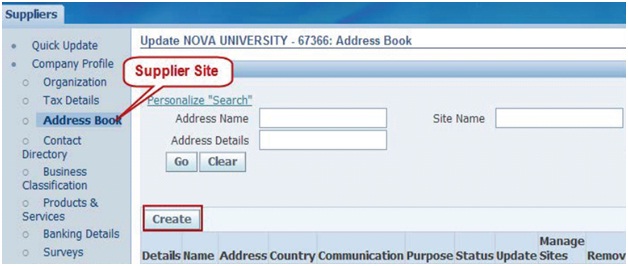

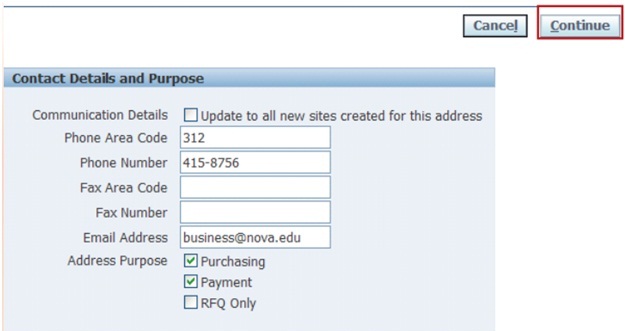

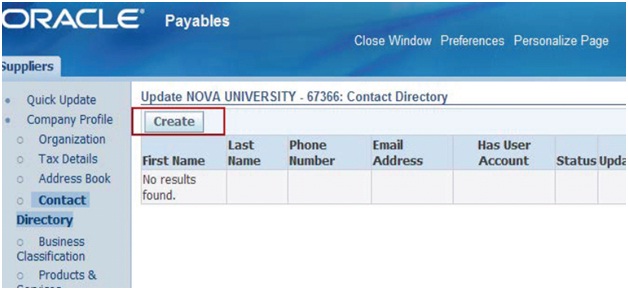



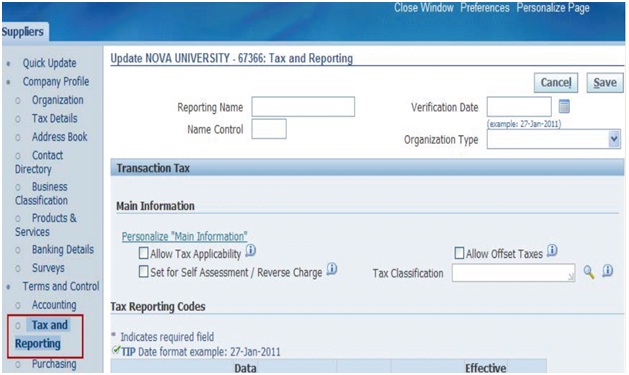
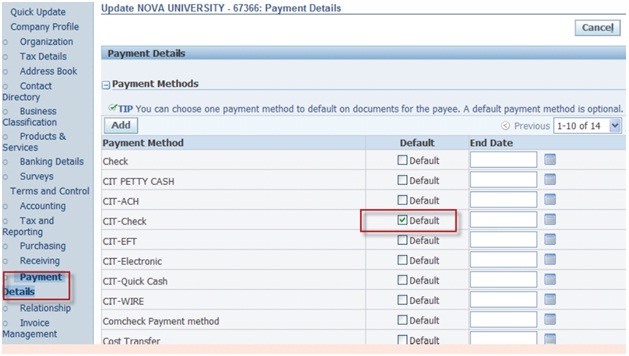
Here we are going to learn the importance of a supplier? How to create a Supplier in R12?
Who is a Supplier?
Let us now understand who is a Supplier with the help of a simple example:
We consider us as a business, who sells dry fruits on a large scale, now all the Vendors who intend to consume dry fruits would be contacting us. So with this perspective we become the Supplier to all the vendors and these vendors are our Customers.
Now to automate this process at the Vendors perspective the Supplier information are to be recorded so for this we have a suppliers window to record information about individuals and companies that provides goods or services from whom a vendor purchases those goods and services in return for payment. The information about the Supplier, Supplier Site, Supplier Contacts & Banks are recorded and these are created as one time setups and are not the daily activities which are later updated when ever required.
Change in the approach for Supplier on R12 when compare to 11i:
| Release 11i | Release R12 | |
| In 11i Suppliers were defined in AP |
→
|
In R12 Suppliers have been moved into the TCA Data Model. |
| a) Creation of a vendor/supplier record in eBusiness suite largely meant insertion of records in PO_VENDORS. | a) Supplier becomes as TCA Party. | |
| b) Suppliers Sites as TCA Party Site for each distinct address. | ||
| c) Contacts for each supplier/address , it means Single supplier address and contact can be leveraged by multiple sites, for each OU. | ||
| Banks/Branches defined in AP |
→
|
Banks and Branches are defined as Parties in TCA |
When compare to the earlier release, in R12 Suppliers and Banks are also part of TCA. Suppliers Sites are as TCA Party Site for each distinct address. A single change to an address can be seen instantly by all OUs, this has an added advantage we no longer need to manually ‘push’ updates across OUs.
This is best illustrated below:

Going further Bank Accounts are classified into Internal & External Bank Accounts
The typical data model for bank can be summarized as below:

Note: Adding to the above information, more details on the supplier when related to TCA (Trading Community Architecture) have been mentioned in my blog “R12 TCA (Trading Community Architecture)”, Request you to please do refer my blog for more details.
We now move further on how a supplier can be created in R12.
Supplier Creation
Supplier in R12 can be created in the below ways:
- Front End (OAF Screen)
- Using API
- Using Standard Interface
- Navigation

- Create New Supplier Record: It is best to search first to ensure that duplicate suppliers are not being created.

- Create New Supplier: Enter the supplier organization information as displayed below. Fields with an asterisk (*) are required.

- Create Supplier – Organization Region <additional optional fields>

- Create Supplier – Address Book Region to add supplier sites

- Create Supplier – Address Book Region to add supplier sites

- Create Supplier – Address Book Region to add supplier sites

- Create Supplier – Add site to Operating Unit

- Create Supplier – Contact Directory region – Add supplier contact

- Create Supplier – Contact Directory region – Add supplier contact

- Create Supplier – Banking Details region – Add/Create bank accounts. This is a change from R11i.

- Create Supplier – Banking Details region – To Add/Create bank accounts

- Create Supplier – Tax and reporting region captures the transaction tax information for the supplier.

- Create Supplier – Payment Details region identifies default payment methods.

No comments:
Post a Comment